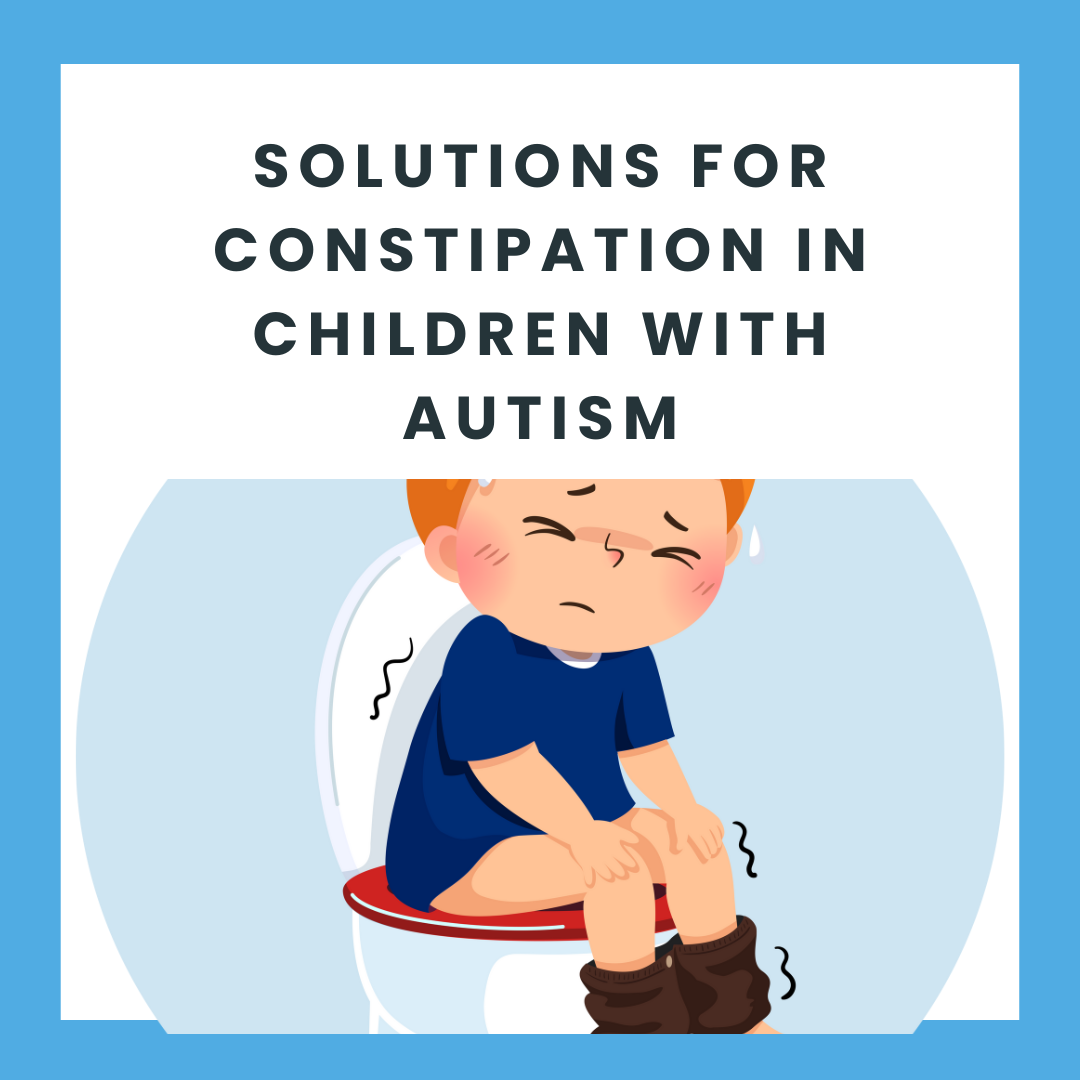As parents of children with autism, we understand the unique challenges that come with addressing gastrointestinal issues such as constipation. It’s not uncommon for children on the spectrum to struggle with irregular bowel movements, which can be distressing for both the child and their caregivers. Today, we’re here to offer practical guidance to help your child find relief.
Our own journey with our son’s constipation struggles has taught us valuable lessons, and one standout remedy that made a difference for him was blueberries. (1 cup and he was on the potty within an hour) We’ll delve into why they can be beneficial shortly, but first, let’s explore some holistic strategies for managing constipation in children with autism.

Fiber-Rich Foods: Incorporating fiber-rich foods into your child’s diet is key to promoting regular bowel movements. Fresh fruits like apples, pears, and, yes, blueberries, are excellent choices. Additionally, vegetables such as broccoli, carrots, and spinach, along with whole grains like brown rice and oats, can provide the necessary fiber to keep things moving smoothly.
If your child is picky (like most children) try making a smoothie and using a syring. Your child likes chocolate? Try blue berries, bananas, psyllium husk and cacao powder.
Hydration: Proper hydration is essential for softening stools and facilitating bowel movements. Encourage your child to drink plenty of water throughout the day. If plain water is a challenge, flavored water or diluted fruit juices can be enticing alternatives.
Try Juicing your drinks. Having store bought juices can cause constipation and abdominal issues due to all the artificial sweeteners and additives.

Probiotic Foods: Probiotics help maintain a healthy balance of gut bacteria, which is crucial for digestive health. Yogurt, kefir, and fermented foods like sauerkraut and kimchi are excellent sources of probiotics. Including these in your child’s diet can support regularity and ease constipation.
Routine and Relaxation: Establishing a predictable routine around meals and toilet time can help regulate bowel movements. Encourage your child to sit on the toilet at the same times each day, preferably after meals when the digestive system is most active. Creating a calm and relaxing environment during toileting can also reduce anxiety and encourage bowel movements.
Physical Activity: Regular physical activity can stimulate bowel movements and promote overall digestive health. Encourage your child to engage in activities they enjoy, whether it’s playing outside, dancing, or swimming.
Blueberries: Nature’s Little Helpers: As mentioned earlier, blueberries can be particularly beneficial for relieving constipation. Not only are they rich in fiber, but they also contain compounds called polyphenols that have been shown to promote gut health. Whether eaten fresh, frozen, or blended into a smoothie, blueberries can be a delicious and effective addition to your child’s diet.
Consultation with Healthcare Professionals: If constipation persists despite dietary and lifestyle modifications, don’t hesitate to seek guidance from healthcare professionals. They can provide further evaluation and recommend appropriate interventions, such as dietary supplements or medications, tailored to your child’s specific needs.
By incorporating nutritious foods, establishing routines, and seeking support when needed, you can help your child achieve greater comfort and well-being. Together, let’s navigate this journey with compassion and determination, empowering our children to thrive.



